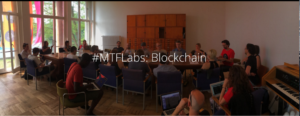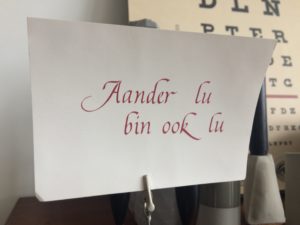Vandaag kwam ik deze video tegen op Facebook, waar Rutger Bregman hem deelde met de woorden “Brian Eno over het basisinkomen – briljant.”.
Wat ik vooral briljant vindt aan deze clip is hoe Brain Eno verwoordt hoe de mensen die wij meestal aanduiden als ‘geniaal’ onderdeel zijn van een community of netwerk of gemeenschap die hen voedt. Niet omdat dat persé zo afgesproken is, maar omdat dat is hoe gemeenschappelijke interesse werkt. Ik maak of zeg iets, jij reageert erop, wij reageren op elkaar, we maken of zeggen betere en mooiere dingen en op een gegeven moment wordt één van ons door ‘de wereld’ in de spotlight gezet als de persoon die iets prachtigs gemaakt heeft.
Scenius is the creative intelligence of a community
Scenius is geen nieuwe term, er is ondertussen al veel over te vinden. Kijk maar eens bij Kevin Kelly of op Wired. De video van Brian Eno bekijkend, realiseerde ik me dat ik dat begrip van Scenius eigenlijk veel belangrijker vindt dan het begrip Basisinkomen, dat Bregman er aan hangt.
Scenius is een fundamenteler begrip, dat in mijn ogen het nastreven waard is. De term Scenius benoemt namelijk een positieve waarde van gemeenschappen. Het lijkt me een goed streven van steden, provincies en landen om een veelheid aan sceniussen (scenia?) te helpen bestaan, omdat vanuit een scenius de waardecreatie komt die zowel maatschappelijk als cultureel en economisch betekenis heeft.
Wie is de partij voor het Scenius?
Het verkiezingsgeweld rondom de Tweede Kamer verkiezingen van 2017 begint op gang te komen. Voorlopig is er weinig gezegd dat me helpt om een keuze te maken. Misschien wordt mijn keuze-selector wel scenius. Van welke politieke partij geloof ik dat zij streven naar een maatschappij die het mechanisme van scenius waardeert en stimuleert?

